
If you're a digital marketer or you've spent some time online over the last couple of months, then you'd have noticed something different about your favorite search engine. Popular search engines like Google and Bing have started to show AI-generated summaries for some search queries.
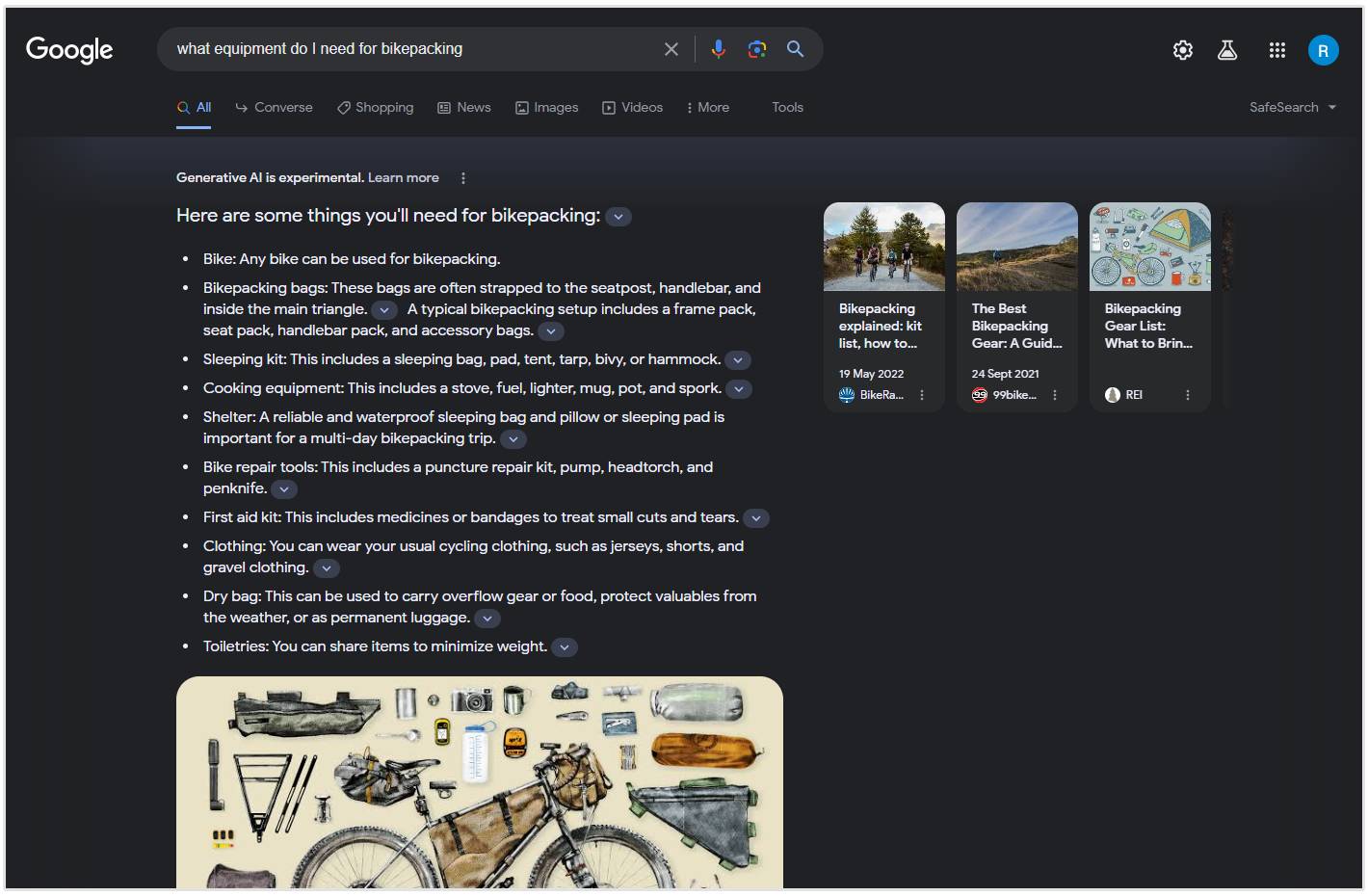
These AI-generated summaries give users quick answers to search queries and link to relevant pages on the web.
SEOs and marketers are scrambling to get their sites and pages shown in this new search feature, but the real question is, is it possible to optimize for this specifically?
The answer lies in a new term called Generative Engine Optimisation, or GEO.
In this post we will discuss what GEO SEO is, and we'll share some insights from an interesting study on strategies you can follow to show in these AI search engine results.
What is Generative Engine Optimisation (GEO)?
Generative Engine Optimisation is the process of optimizing content to improve visibility in search engines that use generative AI. This includes Perplexity AI, Google AI Overviews (Google SGE), and BingChat.
Generative Engine Optimization (GEO) combines content optimisation strategies and traditional SEO techniques with an understanding of how generative AI models interpret content.
GEO SEO vs Traditional SEO
So what is the difference between this new GEO SEO compared to traditional SEO? Well, both have the same intent or end goal, and that is to improve visibility in search engine results.
As you know, traditional SEO is all about optimizing a website and blog content to rank for target keywords in the Search Engine Results Pages (SERPs).
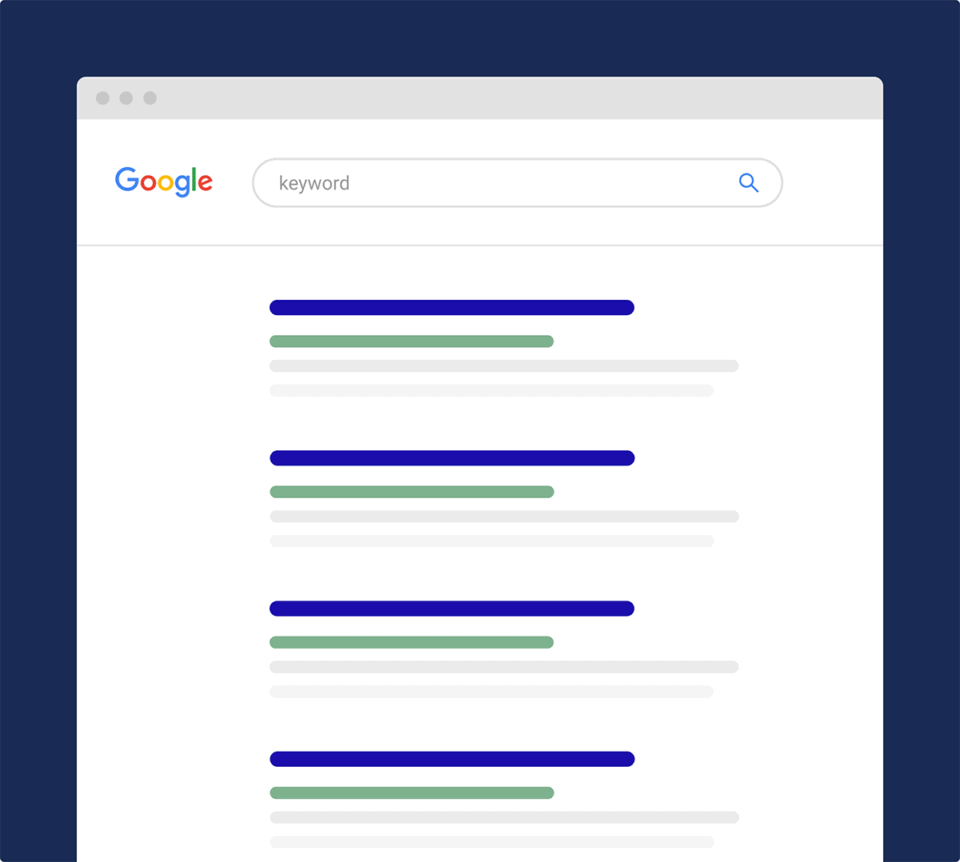
Whereas, GEO focuses on optimizing content so that it appears in the summaries that these AI search engines create.
Is GEO Replacing Traditional SEO?
With all this talk about Generative Engine Optimization (GEO), you might be wondering if it spells the end for traditional SEO.
No, it won't replace traditional SEO. Instead, we think GEO will augment traditional search engine results, helping users find information more efficiently and effectively.
Of course, predicting 5 to 10 years ahead gets tricky as AI technologies become more advanced and used in our daily lives.
As things are now, GEO will not replace traditional SEO since search engines like Bing and Google still feature traditional SERPs with countless results and pages.
GEO SEO: How to Get Mentioned in AI Search Summaries & Overviews
So now that you know what GEO SEO is, how can you appear in these AI-generated search engine summaries?
SEOptimer has been referenced in these AI-generated answers, and we didn't allocate resources for this, nor did we optimize for AI-generated answers specifically.
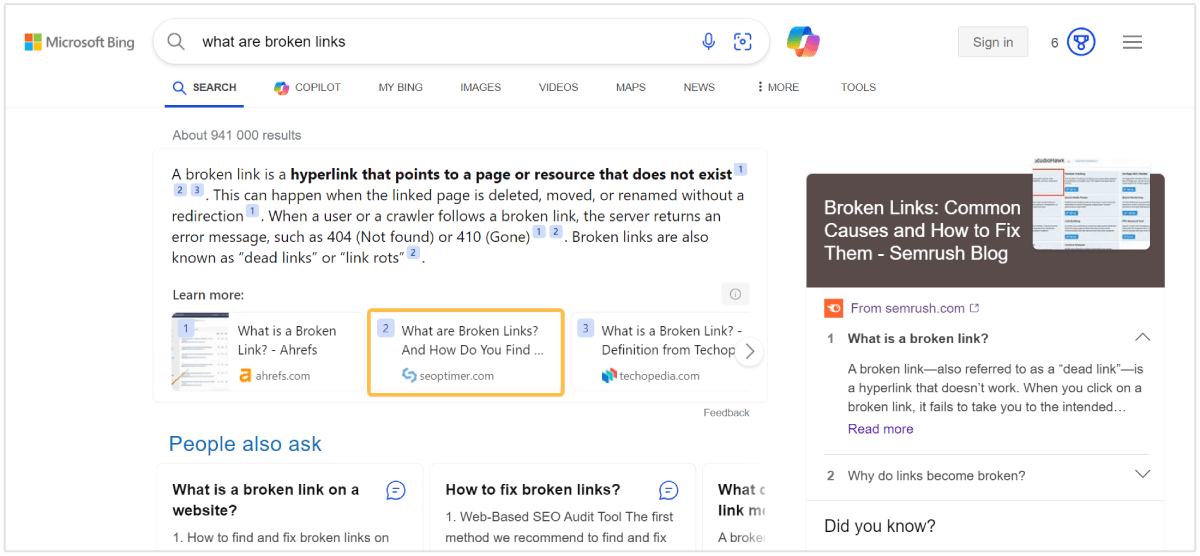
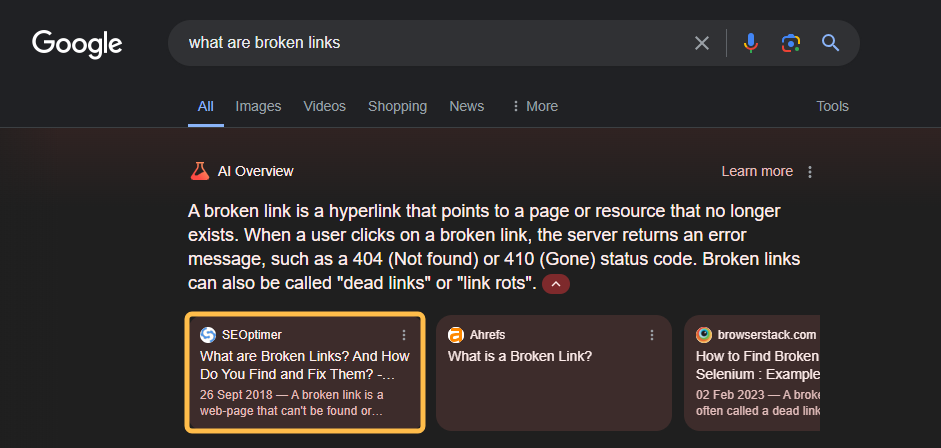
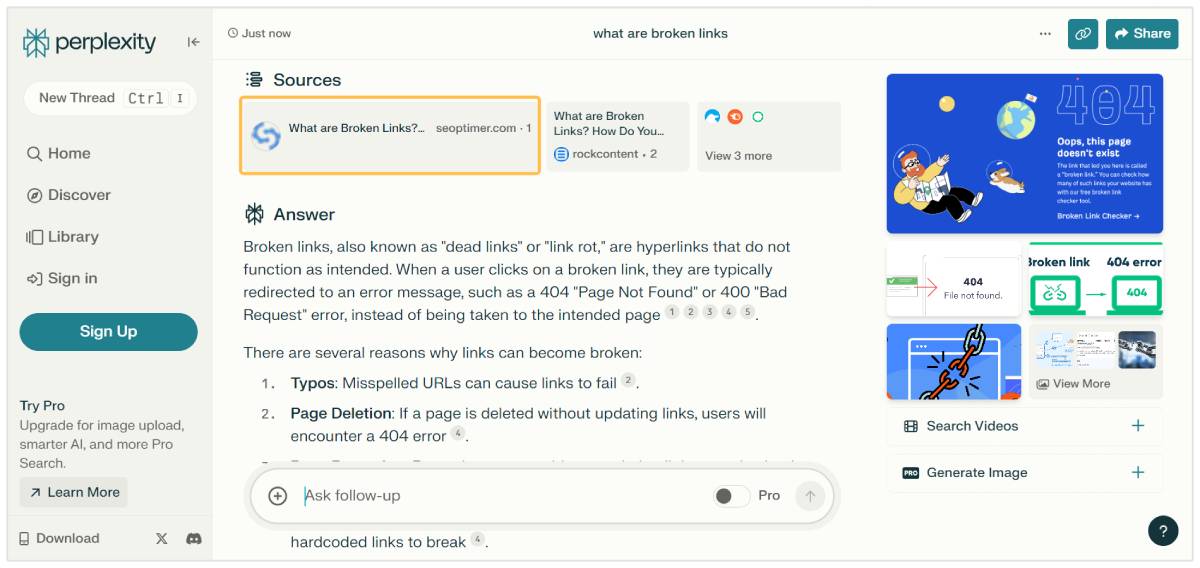
So surely there must be some hack to get featured in these results?
Based on our research and what we've been doing to optimize content, we've created a list of some of the things you can do to tip the scales in your favor, with the goal of appearing in these AI-generated results.
As a general overview, the tactics for getting featured in AI search engines follow more or less the same best practices as traditional SEO.
So by optimizing for GEO SEO, you'll optimize your content for traditional SEO results too.
Digital PR
One of the first steps to getting featured in AI search engine results is to work on your digital PR.
Digital PR involves leveraging online platforms to manage and enhance your brand's reputation, visibility, and credibility.
Here's how you can improve your online PR:
- Create High-Quality Content: Publish informative and engaging blog posts, articles, and press releases. Ensure your content is optimized for SEO to increase its chances of being found and indexed by search engines.
- Build Relationships with Influencers: Collaborate with industry influencers and thought leaders who can amplify your message. Engage with influencers on social media and through guest blogging opportunities.
- Utilize Online Directories and Review Sites: List your business in reputable online directories. Encourage satisfied customers to leave positive reviews on sites like Google My Business, Yelp, and industry-specific platforms.
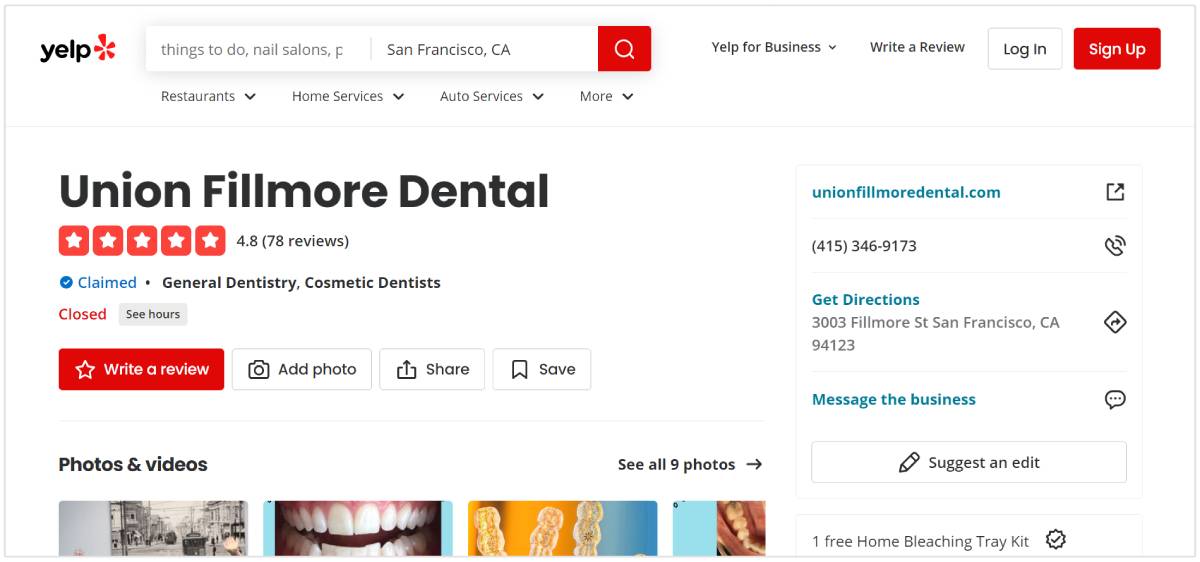
- Earn Backlinks from High-Authority Websites: Create linkable assets that other websites would want to link to.
- Monitor and Respond to Online Mentions: Use tools to track mentions of your brand or keywords across the web. Respond promptly to both positive and negative comments to maintain a positive online reputation.
Get into Google’s Knowledge Graph
The Knowledge Graph is a system designed by Google to enhance search engine results with semantic-search information gathered from a variety of sources. It aims to present precise information about entities—such as people, places, and businesses—directly on the search results page.
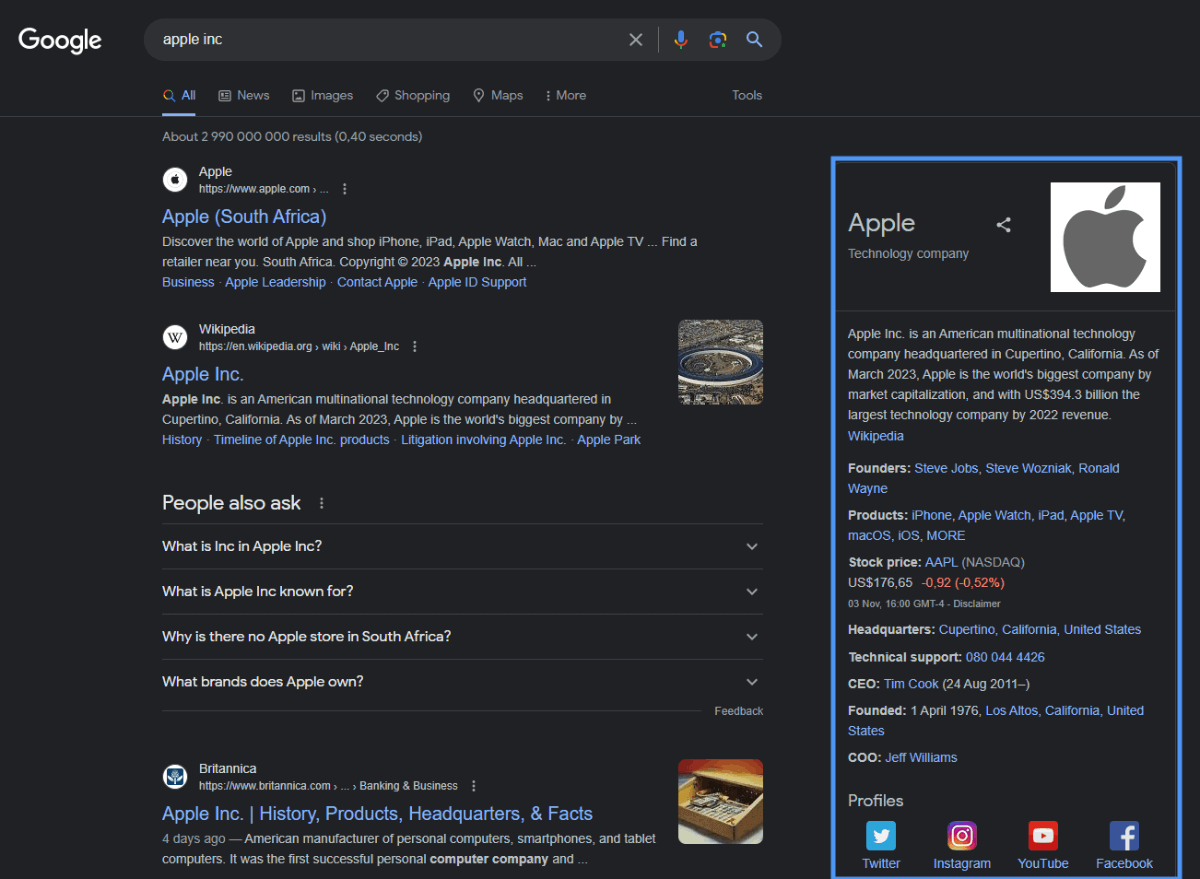
Being included in Google's Knowledge Graph not only boosts your online presence but also boosts the chances of getting featured in LLM outputs.
Here are some actionable steps to achieve this:
- Claim and Optimize Your Google My Business Listing: This free tool allows you to manage how your business appears in Google Search and Maps. By providing accurate and up-to-date information, you're increasing the chances of Google recognizing your business as a legitimate entity and potentially including it in the Knowledge Graph.
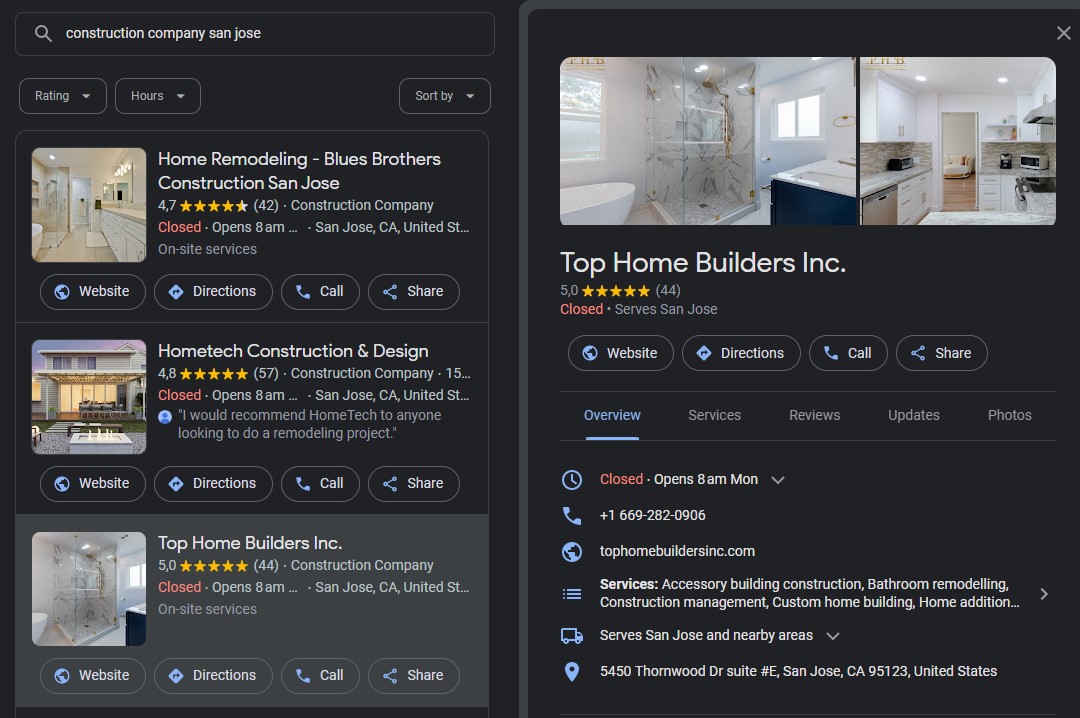
- Build Citations Across the Web: Citations are essentially mentions of your business name, address, and phone number (NAP) on other websites. The more consistent and credible these citations are, the stronger the signal you send to Google about the legitimacy of your business. This can help Google identify your business as a distinct entity and potentially add it to the Knowledge Graph.
- Leverage Authority Websites: Get featured on reputable websites such as Wikipedia, which often serve as sources for Google's Knowledge Graph. Contribute to authoritative industry publications and ensure your business is mentioned.
While there's no guaranteed way to get included in the Knowledge Graph, following these steps can increase your chances and potentially give you more control over how LLMs reference your business or entity in their outputs.
Associate Your Business with Popular Brands
Another effective strategy to get referenced in AI search results and summaries is to associate your business with popular brands.
Aligning yourself with well-known brands can significantly improve your search engine rankings and boost your online awareness, as these associations improve credibility and authority to your business.
The most effective and well-known method is to build backlinks to key pages such as product pages and best converting blog posts.
This could be in the form of guest posts or a simple link exchange.
Let’s take a look at our blog post about broken links which is featured in both Google and Bing’s AI summaries, as well as in Perplexity AI.
By studying the backlink profile for this specific URL, you’ll see that we’ve got links from authoritative brands and resources on the web.
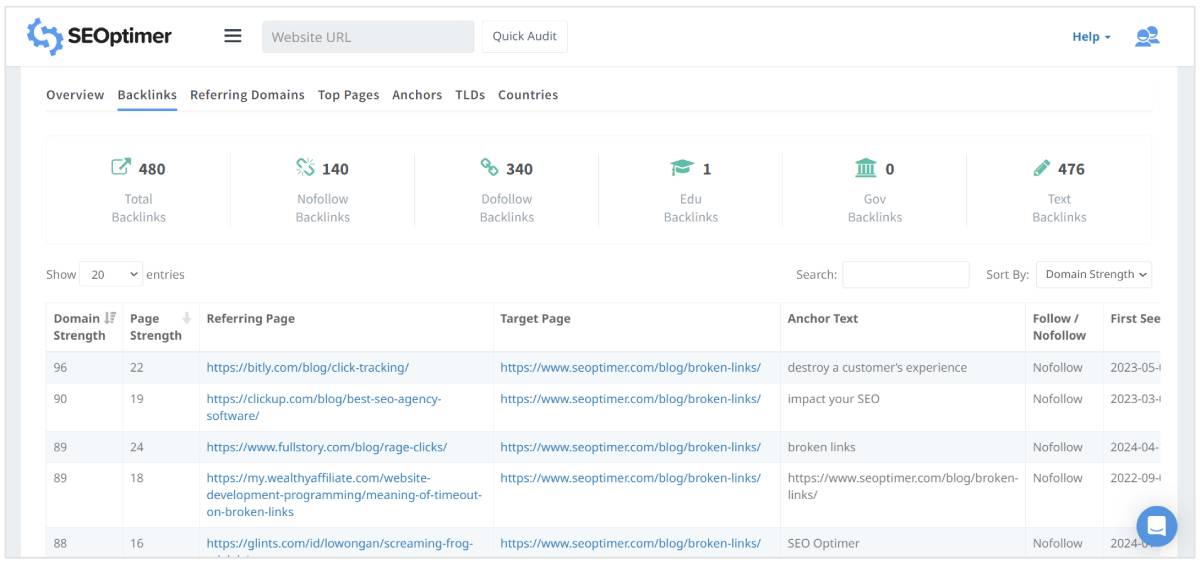
By getting links from these “high profile” domains and publishers, our post on broken links is deemed valuable and useful in the eyes of search engines.
Building backlinks by itself won’t get you into these AI-generated summaries, but it’s just one piece of the puzzle.
Besides, having a strong backlink profile is great for traditional SEO too, so it’s like hitting two birds with one stone.
Use Natural Language
Using natural language is another way to get featured in AI-generated search results and summaries. Natural language refers to the way we communicate in everyday conversations—it's straightforward, clear, and easy to understand.
When content is written in natural language, it resonates more with both humans and AI models, making it more likely to be picked up and referenced.
This type of writing avoids jargon, complex sentence structures, and overly formal wording. Instead, it favors clarity, simplicity, and directness.
Improve Your E-E-A-T
E-E-A-T stands for Expertise, Experience, Authoritativeness, and Trustworthiness. It's a set of criteria used by Google's Search Quality Evaluator Guidelines to assess the credibility and reliability of websites.
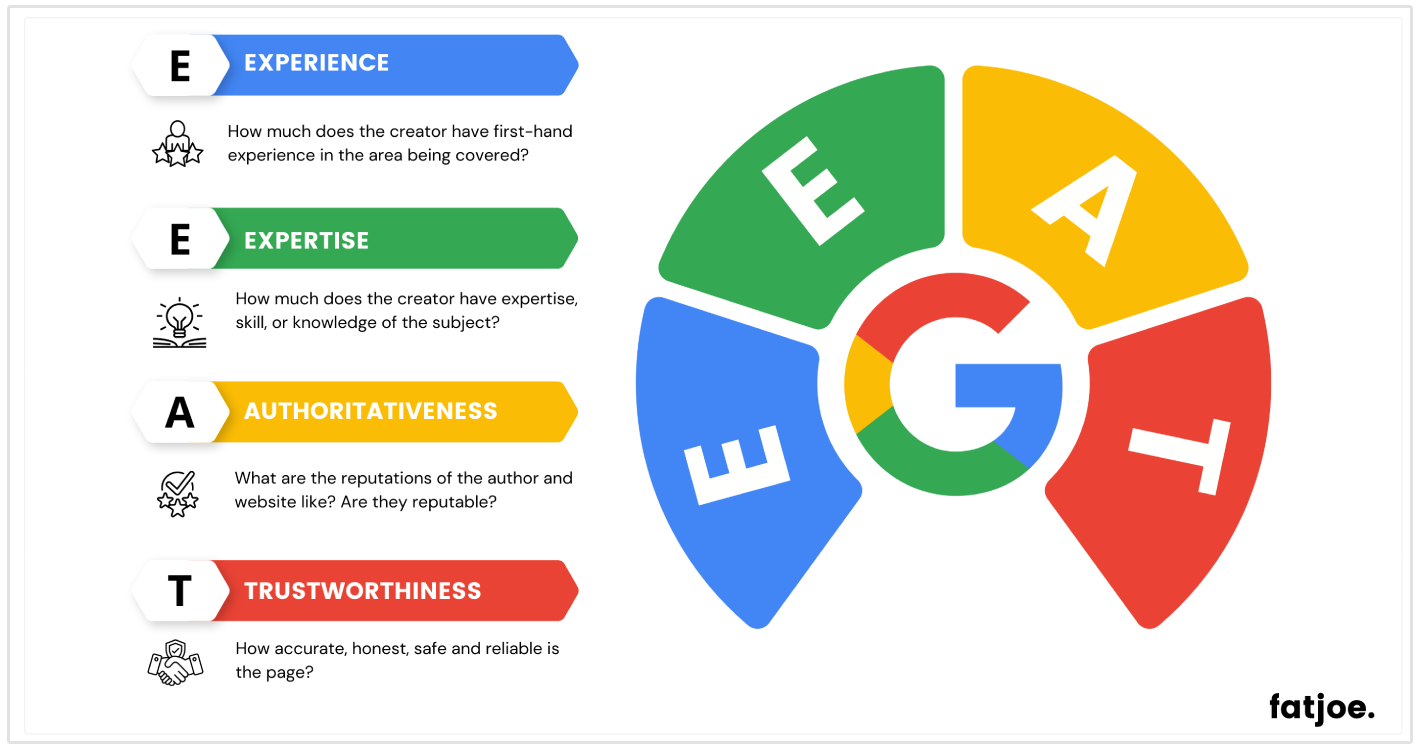
While not a direct ranking factor, E-E-A-T plays a significant role in how search engines perceive your website and how LLMs might reference your content.
Here's why focusing on E-E-A-T is important for getting featured in AI summaries:
- AI Systems Rely on Trustworthy Sources: When it comes to complex topics or information that can impact users (like medical advice or financial decisions), AIs are more likely to prioritize content from credible and trustworthy sources. By building a strong E-E-A-T profile, you increase the chances of your website being seen as a reliable source and potentially referenced in AI summaries.
- Expertise Matters: When you demonstrate expertise in your field through high-quality content and established credentials, you become a more valuable source for Google. Content created by experts is more likely to be accurate, informative, and relevant to user queries. This can significantly influence how AI search engines reference your information in their summaries.
- Experience Makes a Difference: The concept of "Experience" was recently added to the E-A-T acronym. This emphasizes the value of firsthand experience when creating content. For example, a travel blogger with a proven track record of visiting different destinations is likely to be seen as a more reliable source than someone who simply curates information from other websites.
Cite Sources
According to research conducted at Princeton University, Georgia Tech, the Allen Institute for AI, and IIT Delhi, proper citation of sources significantly enhances visibility in AI-generated search results.
Referencing reputable sources reinforces the credibility of your content and readers are more likely to trust information that is backed by reliable references.
So then, how do you effectively cite sources in your blog content?
- Reference established, credible sources such as academic journals, reputable news outlets, and industry reports.
- Incorporate Inline Citations: Place citations within the text where the referenced information appears. Use footnotes or endnotes to provide additional context when necessary.
- Include hyperlinks to the original source material. This allows readers to verify the information and explore further.
- At the end of your content, list all cited sources in a dedicated section. Ensure this section is easily accessible and clearly formatted.
Add Quotes from Authority Figures
Adding quotes from authority figures into your content is another effective strategy for increasing your chances of being featured in AI-generated search results and summaries.
This method was also highlighted in the study that we mentioned above as one of the key practices for improving visibility in AI search engine summaries.
In addition to that, expert quotes can provide valuable insights and perspectives that enrich your content.
You can use a platform like Connectively (formerly HARO) to get quotes from experts in your industry.
At SEOptimer, we like to ask agency founders and executives to give us insights on how they run their businesses.
For instance, we recently created a blog post on how to create the perfect SEO sales pitch. This was the ideal piece of content to get some quotes and insights from digital agency founders since their feedback is relevant to the topic of the post.
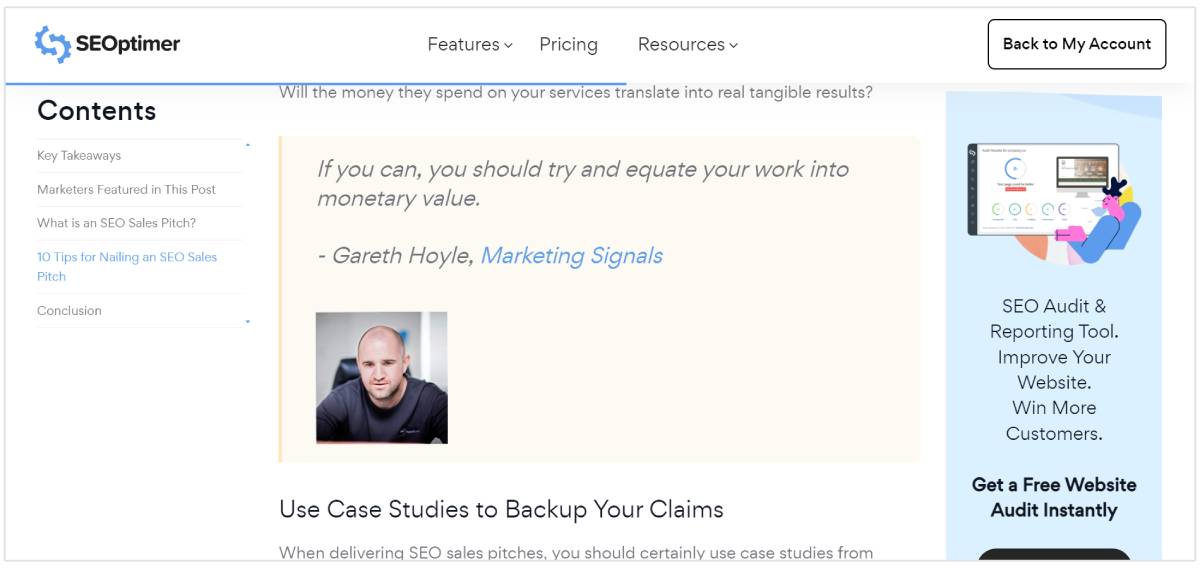
The result?
Our post is featured in Bing’s AI summary for the keyword “SEO sales pitch”.
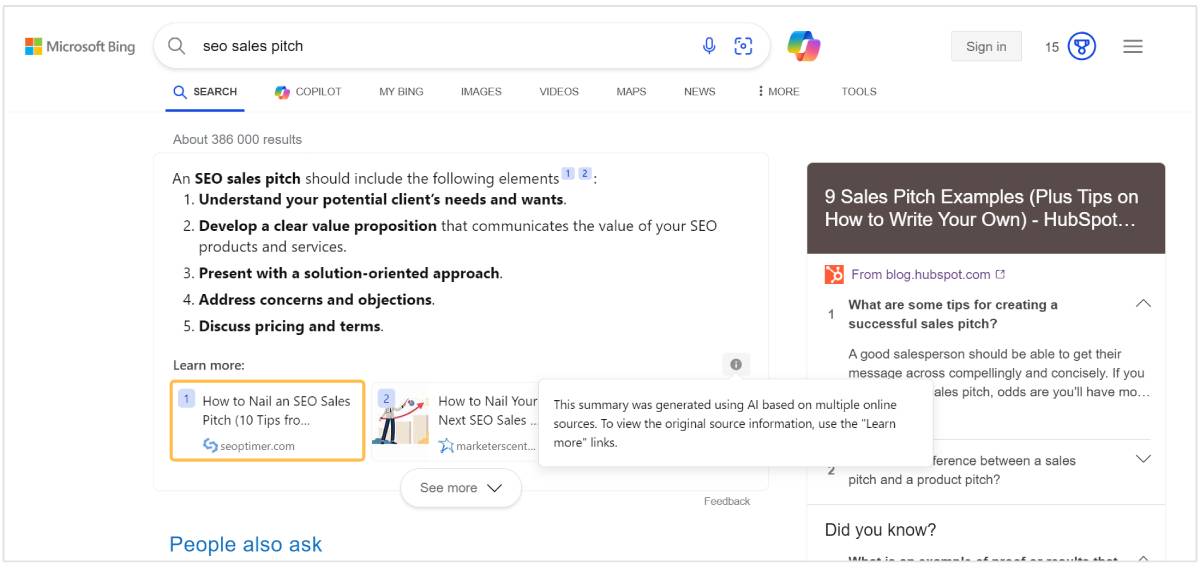
Now I’m not saying that by adding quotes you’ll just get featured in these results. But it definitely increases the odds of getting there.
Add Statistics
Another effective method for improving your chances of appearing in AI search summaries and results is to add statistics to your blog content.
Statistics show that your statements are backed by data, increasing the trustworthiness of your content. And readers are more likely to believe quantifiable evidence instead of opinions alone.
For instance, that research study we mentioned from earlier, showed that citing sources and adding quotes and statistics to content, resulted in improvements of 30 to 40% compared to other strategies from the study.
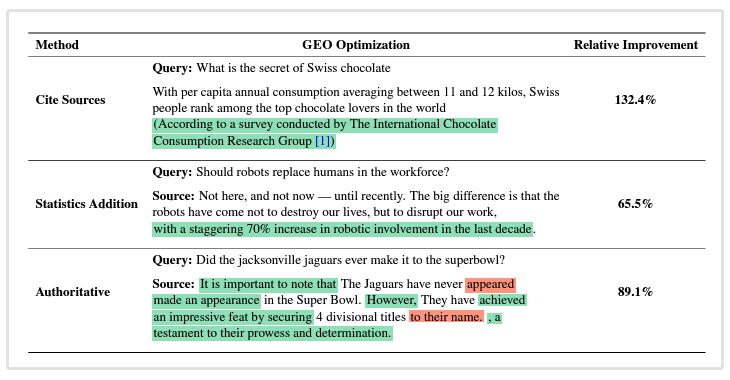
However, simply throwing random statistics around won't do the trick. Here are some pointers for using statistics effectively:
- Make sure the statistics you include are directly relevant to your topic and support the points you're making.
- Always cite the source of your statistics as we mentioned above
- Don't just present statistics in isolation. Explain what the data means and how it relates to your discussion.
Wrapping Up
Generative Engine Optimisation (GEO) takes things a step further than regular SEO. By following the tips and tactics that we've shared in this post, you'll be well on your way to being referenced in AI search summaries in Google AI Overviews, BingChat, and Perplexity.




